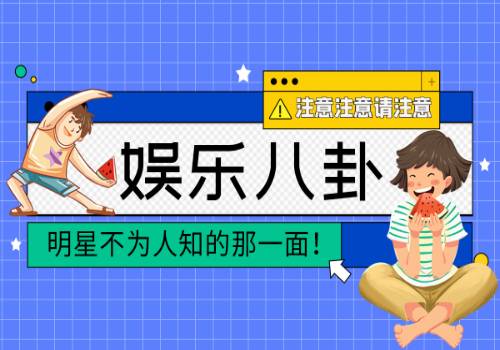天天关注:Observation|扎实的基础、创新的思维、解决实际问题的能力,三者皆可得
感谢Mila等小学部数学老师对本文的支持
Thanks to Mila and other Elementary School math teachers for their support on this article
 【资料图】
【资料图】
温度计、3D模型、手工剪纸…当这些作品同时出现在一间教室的时候,不要怀疑,我们走进了昆山狄邦华曜学校的数学课堂。
这些从一开始就透露出与众不同的学习成果究竟是如何而来的?创校至今已有三年,沉浸式双语教学(Dual Language Immersion)、跨学科融合项目式教学(iSTEAM-PBL)灵活学习小组(Flexible Grouping)这些亮点又是如何在课堂中实现的?
为此,我们特意走进狄邦华曜小学部的数学课堂,看看扎实的学术基础、创新的思维、解决实际问题的能力,是如何在课堂中实现兼得。
Swipe left for English
Thermometers, 3D models, hand-cut paper... Don’t doubt it when you see all these works appear in a same classroom at a same time, we are walking into a math class at Dipont Huayao Collegiate School Kunshan (Dipont HC for short).
How did these extraordinary learning outcomes come about in the first place? It has been three years since the establishment of the school, how are these highlights of Dual Language Immersion and Flexible Grouping and iSTEAM-PBL achieved in the classrooms?
Now, we are coming into a math classroom at Dipont HC Elementary School to see how a solid academic foundation, innovative thinking, and the ability to solve practical problems can be achieved in the classrooms.
向右滑动查看中文
“真实”提高学者的数学核心素养
The "real things" improves the mathematics core literacy of scholars
扎实的基础和创新的思维、解决实际问题的能力并不冲突。要在现实情景中运用数学知识解决问题,就必须要有扎实的基础知识和基本技能。
狄邦华曜的老师们在数学课程教学环节的设计中,将学者们置于真实情境,通过基于探究和基于项目(inquiry-based and project-based)的学习方法,引导学者学会用数学的眼光观察现实世界,用数学的思维思考现实世界,用数学的语言表达现实世界,凭借多样化的项目活动经验,习得知识,锻炼能力,找到解决现实问题的方法。
这种基于项目的学习,与我们习以为常的课堂不同,我们习惯了先学习一个知识点,然后通过“刷题”来加深理解。基于项目的学习是将基础知识与项目学习融合在一起,无论是中文数学还是英文数学,老师们都会设计大大小小、各式各样的项目活动融入日常教学,让学者们边练边学。
了解数学不仅仅是了解事实,学者掌控自己的学习并且能将知识应用于新的情况。
比如:
G2的学者学习乘法,老师会引导学者把谜题盒(puzzle-box)制作成自己喜欢的样子,帮助学者理解原理,记忆乘法口诀。
G3的学者学习分数,可以尝试参照食谱制作一个馅饼,3/4的洋葱、1/4的糖…将不同的食材、调料组合在一起。
G5的学者学习面积公式,可以通过绘制房屋平面图并建立三维模型将面积应用到现实生活;学习多边形,老师会带领学者们丈量学校、小区或公园的绿地面积,按比例尺绘制面积图并进行面积计算。
G6的学者学习负数,不仅要认识并尝试制作温度计,还要在制作过程中演讲,分享制作的方法和自己的思考。
Swipe left for English
In fact, a solid foundation does not conflict with innovative thinking or the abilities to solve practical problems. To use mathematical knowledge to solve problems in real situations, we must have a solid foundation of knowledge and basic skills.
In the design of mathematics teaching, the teachers of Dipont HC put scholars in real situations and guided them to observe the real world with mathematical vision and think about the real world with mathematical thinking through inquiry-based and project-based learning methods. They help scholars to express the real world with mathematical language, acquire knowledge, improve abilities and find ways to solve practical problems by relying on diversified project activities experience.
This kind of project-based learning is different from the classroom we were used to, where we were used to learning a knowledge point and then deepen our understanding by simple repetition. Project-based learning integrates basic knowledge with project-based learning. Whether it is Chinese mathematics or English mathematics, teachers will design various project activities, large and small, into daily their teaching, so that scholars can learn while practicing.
Understand that Math is more than knowing facts.
Scholars take control of their own learning.
Allow the application of knowledge to new situations.
For example:
Scholars in G2 learn multiplication, and teachers will guide scholars to make puzzle-boxes as they like, helping scholars better understand principles and memorize multiplication tables.
G3 scholars will learn fractions and try making a pie from a recipe, 3/4 onion, 1/4 sugar... They will combine different ingredients and seasonings together.
Scholars in G5 learn the area formula and can apply the area to real life by drawing house plans and building three-dimensional models. To learn polygon, the teachers will lead the scholars to measure the green area of the school, community or park, draw the area map and calculate the area according to the scale.
To learn negative numbers, G6 scholars not only have to know about and try to make thermometers, but also make presentations in the process of making them, sharing their methods of making and their own thoughts.
向右滑动查看中文
项目式学习是一个非常有趣的过程,老师们的教学设计通常与真实的生活相关联,一方面引导学生将所学的知识点应用到实际生活中,另一方面,在项目的探索实施过程中,有可能会遇到新的知识,这时候就需要学者查找、学习,将这些新知识、新技能在项目实践中巩固、夯实,并推广到同类的情境中解决新问题。
通过探究式、项目式学习,狄邦华曜的数学课堂让学者们真正具备数学的眼光,能够在现实中发现数学问题,即在现实情景与数学抽象间,做一个联系、一个解释、一个翻译,并运用数学解决真实的问题。
Swipe left for English
Project-based learning is a very interesting process. Teachers" teaching design is usually related to real life. On one hand, scholars are guided to apply the knowledge they have learned to real life; on the other hand, in the process of project exploration and implementation, scholars may encounter new knowledge, which requires them to search and learn. They will have to consolidate these new knowledge points and skills in project practice, and extend them to similar situations to solve new problems.
Through inquiry and project-based learning, mathematics classrooms at Dipont HC enables scholars to truly have a mathematical vision, to find mathematical problems in reality, that is, to make a connection, an explanation, a translation between real situations and mathematical abstractions, and to apply mathematics to solve real-life problems.
向右滑动查看中文
发挥中文数学传统优势,夯实基础拓展知识
Give full play to the traditional advantages of Chinese mathematics, consolidate the foundation and expand knowledge scale
那么,在有限的课时中,老师们是如何完成如此大量的项目探究活动呢?
依据最新课程标准,学者们每周有5节中文数学课,中文数学老师会严格按照国家大纲的要求完成教学。在具体教学设计中,老师会针对性地进行灵活多样的设置,通过内容和形式的差异帮助学生巩固知识。在同样40分钟的课时内,完成几种不同的学习方式和几个不同层次的学习内容。
G3的Jannie老师说:“学者们没必要每天完成一套试卷去刷题,知识的学习更重要的是融会贯通。如果真的存在不理解或完成困难的题目,那就要深挖根源,是读题困难,理解错误,还是存在知识盲区,清楚了根源所在,针对性完成两三次训练就足够了。只有困难的根源在于基础计算或读题困难时,那才需要多加练习。对于已掌握的学者来说,单纯的刷题是没有意义的。”
比如新内容的学习,Jannie老师通常将其设计为情境导入/复习导入、新知掌握、概念确认、应用表达4个环节,留有充足的时间引导学者独立思考,小组讨论,发表观点,让每位学者都拥有多元思维的能力,不会被知识填鸭。
Swipe left for English
So, how can teachers complete such a large amount of project inquiry activities in limited class hours?
According to the latest curriculum standards, scholars will have five Chinese math classes a week, and Chinese math teachers will strictly follow the national syllabus. In the specific teaching design, teachers will make targeted and flexible settings to help scholars consolidate knowledge through the differences in contents and forms. In the same 40 minutes of class, complete several different learning styles and several different levels of learning contents.
G3 teacher Jannie said: "Scholars don"t need to complete a set of papers every day to make repetition, knowledge learning is more important to grasp. If there really is no understanding or difficult to complete the topic, it is necessary to dig deeper to the roots, is it difficult to read the topic, understand it wrong, or is there blind area in knowledge? Make clear the root cause, and complete two or three targeted training will be enough. It is only when the root of the difficulty lies in the basic calculation or reading difficulty that more practice is needed. For scholars who have mastered the subject, it is meaningless to simply make repetition."
For example, the learning of new content is usually designed by Teacher Jannie into four parts: situation introduction/review introduction, mastery of new knowledge, concept confirmation and application expression. She is leaving enough time to guide scholars to think independently, discuss in groups and express their views, so that each scholar has the ability of diversified thinking and will not be simply filled in by knowledge.
向右滑动查看中文
G5 的June老师则强调,由于小学阶段词汇量的限制,英文数学的难度很难深入,因此对于重难点的攻克更多地侧重在中文数学上。老师们会在每个单元设计有挑战题和拓展训练,有的偏重于深挖知识点,有的强调跨学科时与其他知识内容相结合的综合性问题,有的则是一题多解,予以学者不同方向的练习。
此外狄邦华曜鼓励学者参加各类校内外的竞赛活动,建立自信,丰富经验。
Swipe left for English
Teacher June of G5 emphasized that due to the limitation of vocabulary in Elementary School, English math is difficult to go deep, so the key and difficult points should be more focused on Chinese math. Teachers will design challenge questions and extended training in each unit, some of which lay emphasis on digging deep on knowledge points, some emphasize on the comprehensive problems when integrating with other knowledge content, and some of which are with multiple solutions to one question, giving scholars practice in different directions.
In addition, Dipont HC scholars are encouraged to participate in various internal and external competitions to build confidence and enrich experience.
向右滑动查看中文
灵活学习小组与分层教学,在英文数学中更好地提升自我
Flexible learning groups and stratified teaching to help scholars improve themselves in English Mathematics
在常规的中文数学之外,每周还安排有3节英文数学课。
小学数学和科学学科组组长Mila老师介绍:
“我们中文数学与英文数学的课程标准是一致的,因此学者们可以通过中文数学课程学习基础知识和基本技能,并且通过基于探究和项目的学习方法丰富他们在英文数学课程中的学习。
中英文数学并不是使用不同的语言把相同的内容学两遍,中文数学中讲授的内容,在英文项目活动中再次涉及,既可以丰富学者对学科知识的理解,也是梳理所学所得的过程。英文数学在小学阶段的学习目标,除了丰富词汇量,语言提升,打好基础外,更侧重知识的应用,因此学习的方法和过程尤为重要。学者们需要通过探究式、项目式学习,了解数学与不同学科之间的联系,挖掘数学在现实中的意义。
Swipe left for English
In addition to the regular Chinese math, there are also three English math classes in each week.
Teacher Milan, team leader of Elementary School Mathematics and Science Subject Groups, said that:“Our Chinese and English Math are aligned so scholars are able to understand the basic math concepts and skills in their Chinese Math classes and we enrich their learning in our English Math classes through the Inquiry and Projects-Based Learning approach.”
Chinese and English mathematics do not mean using different languages to learn the same content twice. The content taught in Chinese mathematics can be covered again in the English math project activities, which can not only enrich the understanding of the subject knowledge, but also sort out the process of learning. In addition to enriching vocabulary, improving language and laying a good foundation, the learning goal of English mathematics in Elementary School lays more emphasis on the application of knowledge, so the learning methods and processes are particularly important. Scholars need to understand the connections between mathematics and different subjects through inquiry and project-based learning, and explore the meaning of mathematics in real life.
向右滑动查看中文
随着年级的提升,升入G5后英文数学开始分层,一般会同时兼顾学者们的英语成绩和数学成绩,依据测试进行划分。分层后的班级中,同样会参照低年级灵活学习小组的划分方式,依据教学需求进行分组。
高阶的学者,知识和技能掌握程度较好,老师一方面会加强基础测试,检查学者们的掌握情况,同时会设计更多的内容,采用探究式的方法,引导学者深入思考,更灵活更全面地掌握所学知识。
中阶的学者则将自我探究与老师指导相结合,找准问题,克服语言障碍,提升数学能力,补齐短板。
低阶的学者需要更多的指导,Damon老师依据学情,从夯实基础开始,借助丰富多元的项目活动开展教学。一方面是涵盖基础计算能力等方面的练习。一方面运用不同形式的单词听写帮助学者巩固词汇的学习,引导学者规范英语数学的表达。同时也会和学者一起进行阅读训练,阅读的主题都与学科知识相关,帮助学者更好地理解、表达、应用。Damon老师还会借助各种迷你项目,替代枯燥的习题,拆分解题步骤,引导学者掌握数学的学习方法和逻辑思维。
Swipe left for English
With the grades going up, English mathematics began to be stratified since G5. Generally, both English and mathematics scores of scholars were taken into account, and the grades were divided according to the tests results. In the stratified classes, the flexible learning groups will also be divided according to the teaching needs, like that of lower grades.
Advanced scholars have a better grasp of knowledge and skills. Teachers will strengthen basic tests to check the mastery of these scholars. At the same time, they will design more contents and use inquisitorial methods to guide these scholars to think deeper and master the knowledge more flexibly and comprehensively.
Middle-level scholars will combine self-inquiry with teacher guidance to identify problems, overcome language barriers, improve math abilities and fill in the blanks.
Scholars with relatively lower-levels might need more guidance. Teacher Damon will start with a solid foundation and use a variety of program activities to teach based on the learning needs. There are exercises that cover things like basic numeracy. On the other side, different forms of dictation will be used to help scholars to consolidate vocabulary learning and guide scholars to build the expression of English mathematics. At the same time, Damon will also conduct reading training with scholars. The topics of reading are related to subject knowledge to help scholars better understand, express and apply them. Damon also uses mini projects to replace boring exercises, break down the steps, and guide scholars to learn math and logical thinking.
向右滑动查看中文
无论处于哪个层级,学者们都能在狄邦华曜的课堂上找到提升的途径与空间。老师们会千方百计地引发学者兴趣,设置阶梯性学习目标,帮助学者建立自信,挑战自我,依据每个学者的学习情况,不断细分教学内容一步步引导学者提升。
Swipe left for English
Scholars at all levels can find paths and room for improvement in classes of Dipont HC. Teachers will try every means to increase scholars’ engagement, set stepped learning goals, help scholars build confidence and challenge themselves, and constantly subdivide contents to guide scholars to improve step by step according to each scholar"s learning progress.
向右滑动查看中文





















 营业执照公示信息
营业执照公示信息